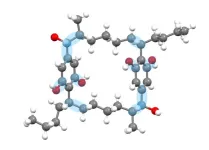(Press-News.org) Almost nine out of ten voters who supported Donald Trump for US President believe that America’s values, traditions and future economic prosperity are under threat – double the number of Kamala Harris supporters.
This is according to new data from Cambridge University’s Political Psychology lab, who worked with YouGov to conduct an opinion poll of US voters shortly before the election.*
Some 89% of Trump voters agree that “American values and beliefs are being undermined and cherished traditions are under threat” compared to 45% of Harris voters.
Moreover, 87% of Trump voters agree that jobs in the US are “insecure right now and future prosperity is under threat” compared to just 39% of those who supported Harris.
Trump voters also scored higher, on average, than Harris voters in brief psychological tests for levels of authoritarianism, as well as for Social Dominance Orientation: a preference for hierarchy within social groups.
“A lot of media attention focuses on the specific things Trump says and whether they are truthful,” said Dr Lee de-Wit, head of Cambridge’s Political Psychology lab.
“Our results highlight that part of Trump’s appeal is in the values he communicates, and the way in which he manages to respond more directly to the sense of threat perceived by many US voters,” de-Wit said.
“These findings may help explain why Democrat attacks on Trump supporters resonated so strongly, from Clinton’s ‘basket of deplorables’ to Biden’s ‘garbage’ comment, because far more of Trump’s base see their country’s values and jobs as under threat already.”
De-Wit points to recent research suggesting that voters in the UK are more likely to support candidates whose values and attitudes align with their own – an effect that outstrips left-right identification.
Both Democrat and Republican leaders repeatedly stated that a victory by the other side is dangerous for America, including in the closing arguments of the campaign.
Polling suggests that this resonated with the electorate. Large majorities in both camps felt their “way of life would be under threat” if the opposing candidate won (74% of Trump voters; 68% of Harris voters), suggesting high levels of mutual distrust.
“Psychological research suggests that across any population you will find that people respond differently to threat, whether perceived or real, and that their reactions are related to underlying psychological characteristics,” said de-Wit.
For this reason, the Cambridge team asked voters to respond to scales measuring authoritarianism, as well as Social Dominance Orientation.
People who score highly on authoritarianism are concerned about enforcing in-group norms and respecting legitimate authority.
Meanwhile those high in Social Dominance Orientation care about the position of their in-group in relation to other groups. “They are sensitive to status, and often view the world as divided into winners and losers. They can be triggered by the idea that their group is slipping down the social and economic hierarchy.”
Trump voters scored significantly higher than Harris voters for both characteristics.
De-Wit says these results are consistent with the work of Dr Karen Stenner, another political psychologist. “Stenner describes perceived threat as a trigger for an ‘authoritarian dynamic’. When a group’s norms are under threat they seek safety through greater conformity, punishment for norm breakers and the authority of a strong leader.”
De-Wit and colleagues say this may partly explain why the famous “Make America Great Again” (MAGA) slogan plays so well with Trump voters, with 97% agreeing that “Americans should make our country great again”, compared to only 42% of Harris voters.
“The words themselves invoke a perceived loss of status which would matter for those high in Social Dominance Orientation, while the sense of a shared mass movement that has grown up around MAGA would be appealing to those high in authoritarianism,” said de-Wit.
While the MAGA slogan proved divisive across the voting public, Democrat slogans such as Harris’ statement that Americans have “much more in common than what separates us” were viewed favourably by a majority of Trump (80%) and Harris (86%) voters alike.
“The broadly positive response across the board to the ‘more in common’ slogan suggests the Democrat appeal to unity was a popular one,” said de-Wit. “Perhaps Democrats need to better understand how to speak to the real or perceived threats people face.”
The statement that “Americans should put country over party”, used by some Republicans, including former Republican Governor Arnold Schwarzenegger, to explain why they were endorsing a Democrat, polled even better: 89% of both Harris and Trump supporters agreed with the slogan.
De-Wit points out that the two Democrat slogans that got over 80% in both camps are compatible with at least moderate levels of authoritarianism, as “more in common” reassures those who dislike division and “country over party” is an appeal to loyalty, albeit to a wider in-group.
Added de-Wit: “From Brexit to Trump, it is clear that those seeking to understand the dynamics of modern politics need to look beyond traditional political labels of left and right, and conventional demographics.
“We need to understand why some voters are feeling so threatened, and clearly politicians need to think deeply about how to respond to those threats.”
NOTES:
*Responses from a sample of 1,089 US voters were gathered on 23-25 October 2024, and are nationally and politically representative. While the polling was conducted by YouGov, all analysis was undertaken by the Cambridge University’s Political Psychology lab, and the survey was designed by Tessa Buchanan, Lee de-Wit and Malia Marks.
END
Vast majority of Trump voters believe American values and prosperity are ‘under threat’
2024-11-11
ELSE PRESS RELEASES FROM THIS DATE:
Scientists investigate if red grape chemical can keep bowel cancer at bay
2024-11-11
Cancer Research UK-funded scientists are finding out if an ingredient commonly found in grape juice and wine could keep bowel cancer at bay.
Resveratrol – a naturally occurring ingredient found in grapes, blueberries, raspberries and peanuts – will be tested as a potential cancer prevention drug as part of the Cancer Research UK-funded COLO-PREVENT trial.
The trial is led from the University of Leicester and the National Institute for Health and Social Care Research (NIHR) Leicester Biomedical Research Centre.
The trial ...
The refrigerator as a harbinger of a better life
2024-11-09
To get a good sense of a country’s level of development, you need to look at the items people have in their homes, according to economists Rutger Schilpzand and Jeroen Smits from Radboud University. Research on low- and middle-income countries often focuses on income, health or education, but that doesn’t tell you the full story of a country’s situation. ‘That’s why, for the first time, we are mapping out how the material wealth of households is developing,’ Schilpzand explains. The researchers coin this material wealth growth for households the 'domestic transition'. ...
Windfall profits from oil and gas could cover climate payments
2024-11-09
A central issue at the UN Climate Change Conference, set to start on November 11, will be the negotiations on new payments from industrialized nations to poorer countries. However, the question of whether and how these payments will be financed remains highly controversial. The study by an international team of researchers, with participation by the Technical University of Munich (TUM), has now revealed: The windfall profits alone taken in by oil and gas companies due to the 2022 energy crisis would have been sufficient to cover the existing commitments of the industrialized nations for nearly five years. The researchers ...
Heartier Heinz? How scientists are learning to help tomatoes beat the heat
2024-11-08
PROVIDENCE, R.I. [Brown University] — By studying tomato varieties that produce fruit in exceptionally hot growing seasons, biologists at Brown University identified the growth cycle phase when tomatoes are most vulnerable to extreme heat, as well as the molecular mechanisms that make the plants more heat tolerant.
The discovery, detailed in a study in Current Biology, could inform a key strategy to protect the food supply in the face of climate instability, the researchers said. Agricultural productivity is particularly vulnerable to climate change, the study noted, and rising temperatures are predicted to reduce crop yields by 2.5% to 16% for every ...
Breaking carbon–hydrogen bonds to make complex molecules
2024-11-08
A team of scientists led by Caltech and Emory University has synthesized a highly complex natural molecule using a novel strategy that functionalizes normally nonreactive bonds, called carbon–hydrogen (C–H) bonds. The work demonstrates a new category of reactions that organic chemists can consider as they work to create natural products that could be used in pharmaceuticals or new materials, or to produce organic chemicals in more sustainable ways.
"This work moves the field forward by showing the power of C–H functionalization," says ...
Sometimes you're the windshield: Utah State University researcher says vehicles cause significant bee deaths
2024-11-08
LOGAN, UTAH, USA -- When a large mammal such as a deer or a moose is struck by a motor vehicle, the damage is usually dramatic. To reduce these unfortunate events, transportation officials have teamed with wildlife researchers to place warning signs, and to construct wildlife underpasses and overpasses, to mitigate mishaps along animal migration paths.
In contrast, collisions with much smaller bees often go unnoticed or are perceived by motorists as simply an annoying splat on a windshield. The significance, Utah State University ...
AMS Science Preview: Turbulence & thunderstorms, heat stress, future derechos
2024-11-08
The American Meteorological Society continuously publishes research on climate, weather, and water in its 12 journals. Many of these articles are available for early online access–they are peer-reviewed, but not yet in their final published form.
Below is a selection of articles published early online recently. Some articles are open-access; to view others, members of the media can contact kpflaumer@ametsoc.org for press login credentials.
JOURNAL ARTICLES
A New Heat Stress Index For Climate Change Assessment
Bulletin of the American Meteorological Society
Heat Index may dramatically underestimate heat stress in extreme temperatures. This work compares the ...
Study of mountaineering mice sheds light on evolutionary adaptation
2024-11-08
Teams of mountaineering mice are helping advance understanding into how evolutionary adaptation to localized conditions can enable a single species to thrive across diverse environments.
In a study led by Naim Bautista, a postdoctoral researcher in Jay Storz’s lab at the University of Nebraska–Lincoln, the team took highland deer mice and their lowland cousins on a simulated ascent to 6,000 meters. The “climb” ventured from sea level and the mice reached the simulated summit seven weeks later. Along the way, Bautista tracked how the mice responded to cold stress at progressively lower oxygen levels.
“Deer ...
Geologists rewrite textbooks with new insights from the bottom of the Grand Canyon
2024-11-08
LOGAN, UTAH, USA – Any boomer, gen xer, millennial, gen zer or alpha who’s studied geology has likely gained foundational knowledge from Edwin Dinwiddie McKee’s landmark studies of the Grand Canyon’s sedimentary record – even if they don’t readily recognize McKee’s name.
The legendary scientist, who lived from 1906-1984, studied and documented the stratigraphy and sedimentation of Colorado Plateau geology, especially the Grand Canyon’s Cambrian Tonto Group, for more than 50 years. His time-tested ...
MSU researcher develops promising new genetic breast cancer model
2024-11-08
A Michigan State University researcher’s new model for studying breast cancer could help scientists better understand why and where cancer metastasizes.
Professor https://directory.natsci.msu.edu/Directory/Profiles/Person/103559 who teaches in the MSU Department of Physiology, has been researching the E2F5 gene, of which little is known, and its role in the development of breast cancer. Based on findings from Andrechek’s lab, the loss of E2F5 results in altered regulation of Cyclin D1, a protein linked to metastatic breast tumors after long ...



